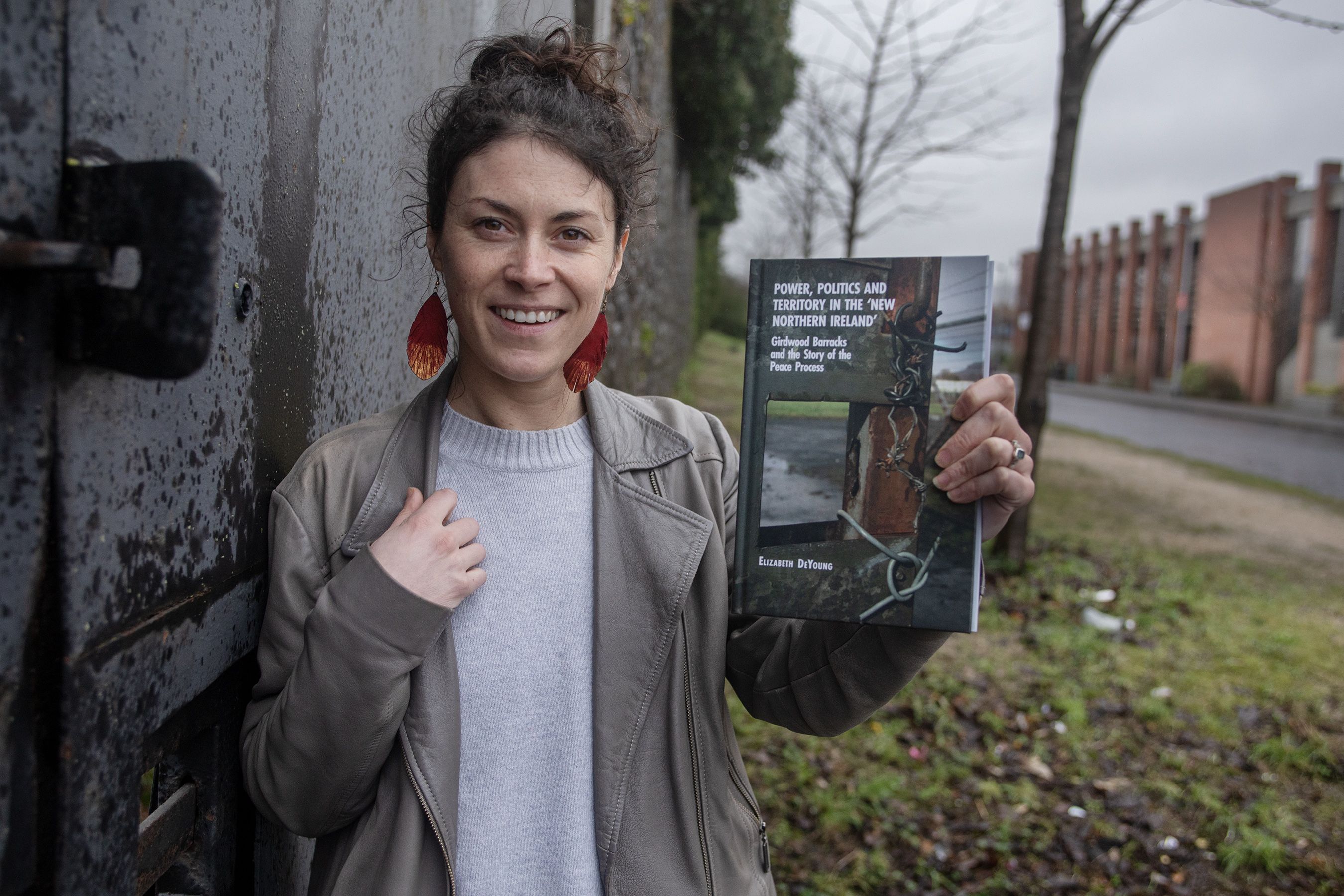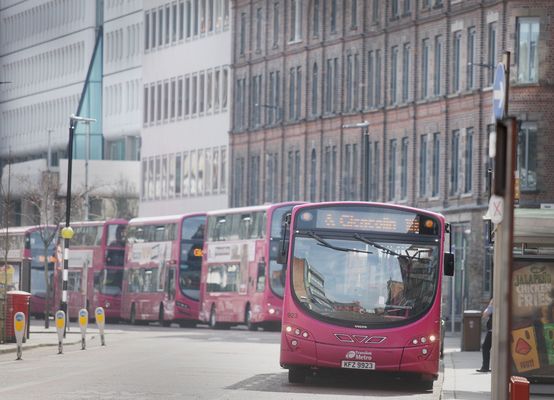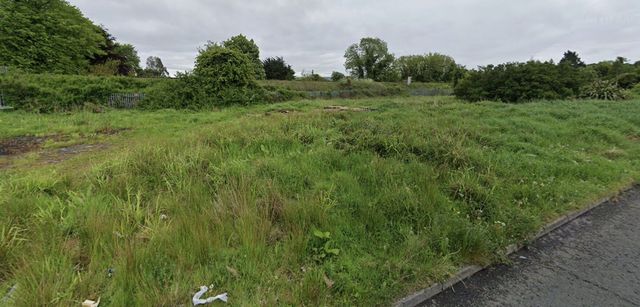AN AMERICAN academic who spent almost a decade in North Belfast has said that the development of the former Girdwood barracks site was a missed opportunity to ease the housing waiting list problems in the area.
Dr Elizabeth DeYoung who is originally from Boston and now works as a Research Scientist at the University of Pennsylvania first came to Belfast as a student for six months and fell in love with the city by walking around and talking with people.
Liz said: “From the first time I set foot in Belfast I just loved walking through all of the different areas and I found it so interesting as an outsider. I didn’t originally have a plan or expect to spend the best part of a decade over here but the city really drew me in.
“The first thing I noticed when I walked down Cliftonpark Avenue was all of the empty land and the sense of how empty it was. Here’s a place not ten minutes from the city centre and it wasn’t being used by people. I was really surprised by that. On another walk I kept running in to the Girdwood barrier and I kept trying to figure out how everything fit together in the area.
“The more I learned about the area the more I began to knock on the doors of community groups and ask them about the issues. The issue of housing and land use kept coming up time and time again."
Dr Elizabeth DeYoung outside the Girdwood Community Hub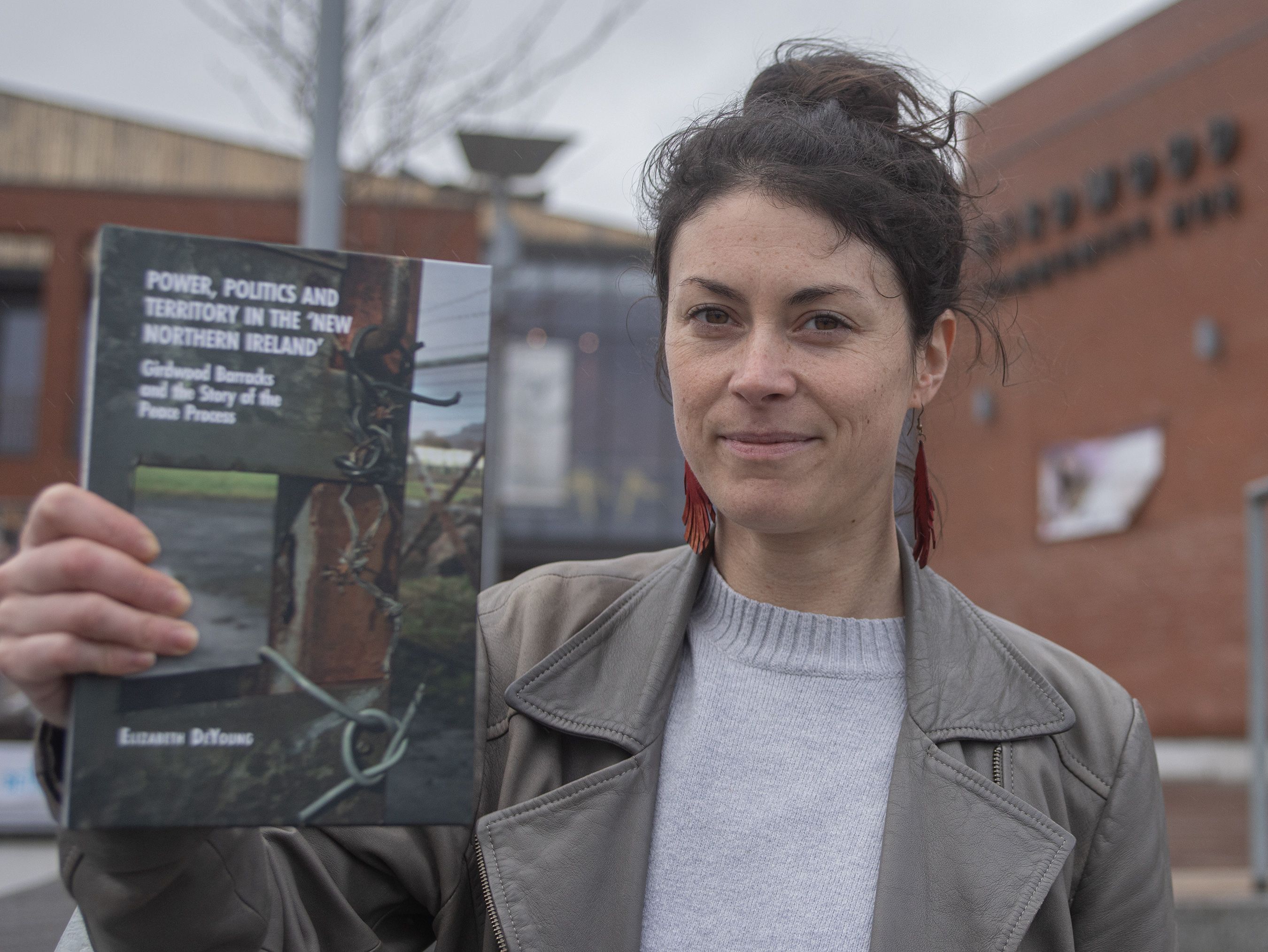
For research Liz made extensive use of the archives of the North Belfast News.
“There’s a massive housing crisis in North Belfast and then there’s just all this land there [at Girdwood] not being used – why is that? The British army left Girdwood almost 20 years ago – this was a space which used to be one of the main sites of conflict and a frontline barracks and then everyone was wondering what it would be transformed into."
She added: “Sectarianism came into play regarding the land and who had the right to the land. Unlike in West Belfast which has a pretty clear cut division, in the North there’s hundreds of divisions, territorial boundaries and also invisible barriers. The land is very much contested in North Belfast and there were arguments over potential demographic shifts.
“In unionist areas there was concern over the decline of areas and you saw lots of derelict housing and people moving away and in nationalist areas you saw less housing and more overcrowding and houses built right up to the peace walls. There was also a big increase in the nationalist population and that created a lot of tension in North Belfast.
“There were arguments over who was going to live on this empty land and politicians were worried about electoral changes if demographics shifted. At the time the DUP were still holding on to the area and they were worried about losing a seat in the area. From the start the DUP were very much against having any new housing built there."
Throughout her years of research Liz said she was able to observe the brilliant work being done on the ground level by community groups who were often deeply let down by the political process which failed to address the needs of people in North Belfast."
The former Girdwood Barracks lay dormant for years after the British army's withdrawal 20 years ago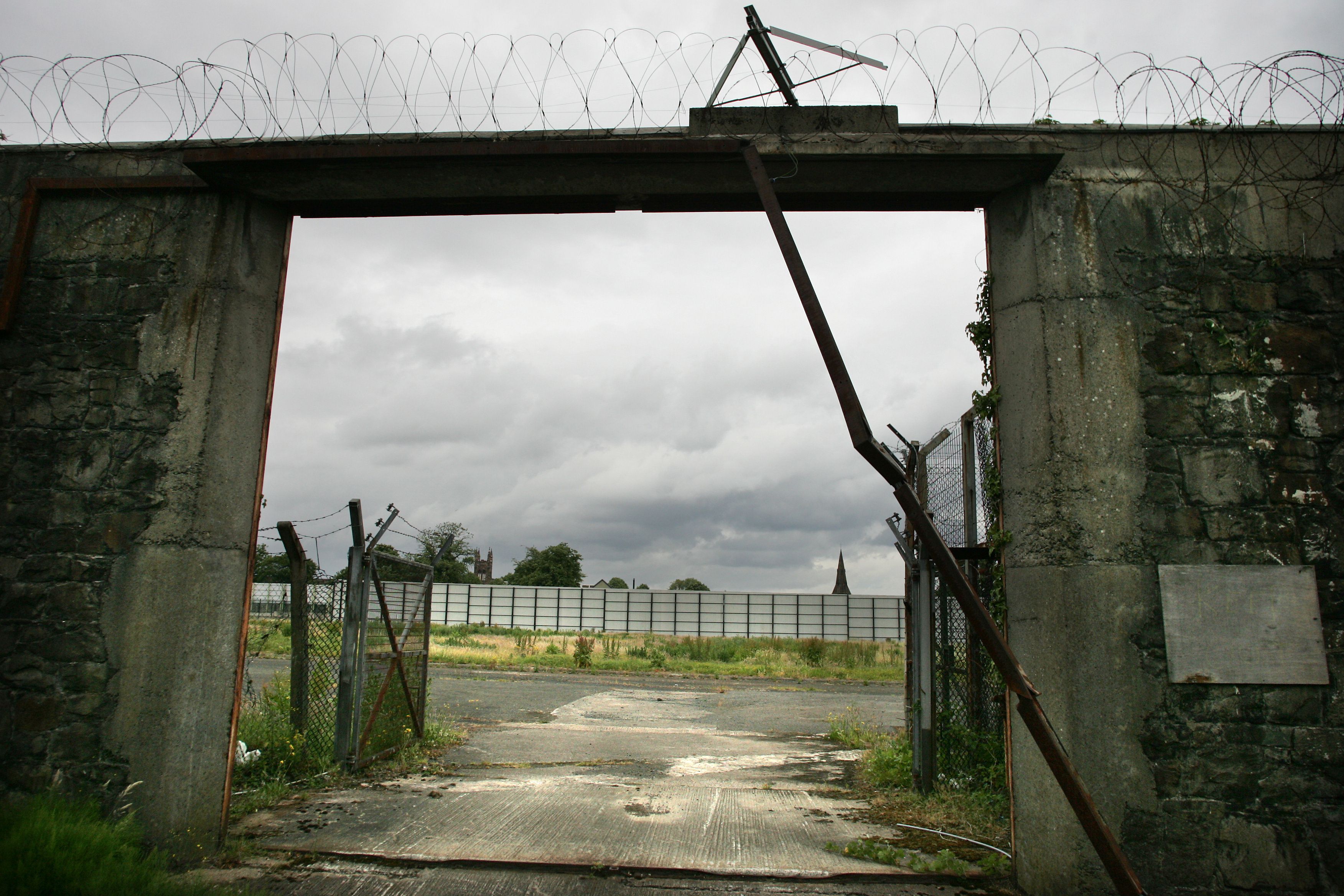
Liz said: “During the research I spoke to many different community groups as well as PPR who have been involved in trying to secure more much needed housing in Belfast. Recently PPR have been highlighting the issue at Mackies in West Belfast. At Girdwood you had 27 acres and they should have built far more than 60 houses on that site.
“Girdwood really became a missed opportunity. It’s a brilliant allegory for the peace process as a whole. There was an opportunity to build more and to start afresh and you had tit-for-tat politics which has eventually ran out of road. The failure of Girdwood is very much representative of the missed opportunities of the peace process as a whole.
“The same forces who refused to develop and realise the potential for Girdwood to be used for housing are the same forces who have collapsed the Executive over the Irish sea border and unfortunately the politics of Girdwood have continued to today."
The British Army leaving Girdwood almost 20 years ago in this photo from North Belfast News archives.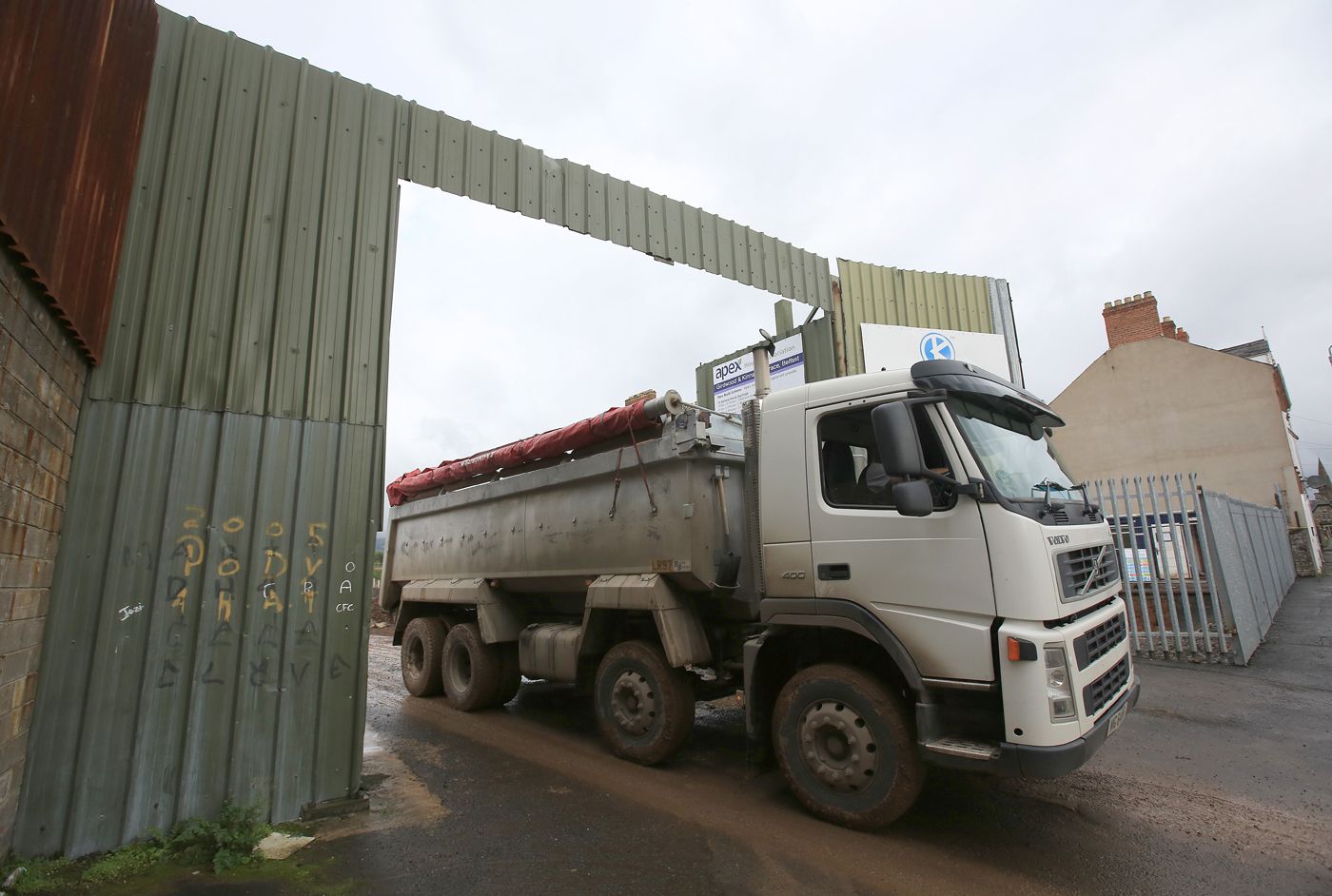
Liz said that there are currently concerns that similar examples of what happened in Girdwood might be repeating themselves at the Mackie's site in West Belfast which housing activists have long said needs to be used to ease the massive housing crisis in West Belfast.
“When it comes to Mackies site, there needs to be political will so it doesn’t turn out the same as Girdwood. A greenway is nice but people really need houses in the area. My book focuses not only on the failure of Girdwood and how it’s parallels are seen in the peace process as a whole but also on the impact this politics has on local communities and it does have very serious and real effects on communities and groups who are trying their hardest but can’t make things happen until politicians get themselves together.
“I think Girdwood is an issue of injustice but I also wanted to recognise the excellent and really good work going on at the community level by people who have forward thinking and really innovative ideas to engage communities and convey their needs. I think for example the work of PPR has been really important and has been growing in the wake of the current political vaccuum.
“I want to thank everyone who helped me with my research over the years and all of the community groups and I hope there will be the political will to avoid the mistakes that were made over Girdwood in the future.”
Liz's book will be launched at the Cultúrlann on 27 January at 12pm as part of Scoil Gheimhridh Uí Chadhain and also at an event at Queen's University on 29 January. Tickets can be reserved for the Queen's launch here: Queen's launch
Liz's book can also be explored through a series of blog posts which are available here. There is also a podcast which tells the tale of Girdwood and Liz's research here.

